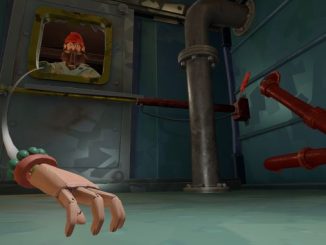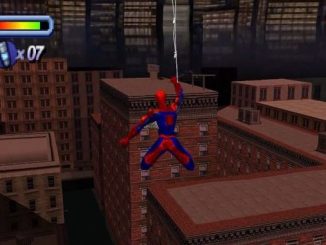Our review of Lorelei and the Laser Eyes, developed by Simogo. Available now for Switch and Windows.
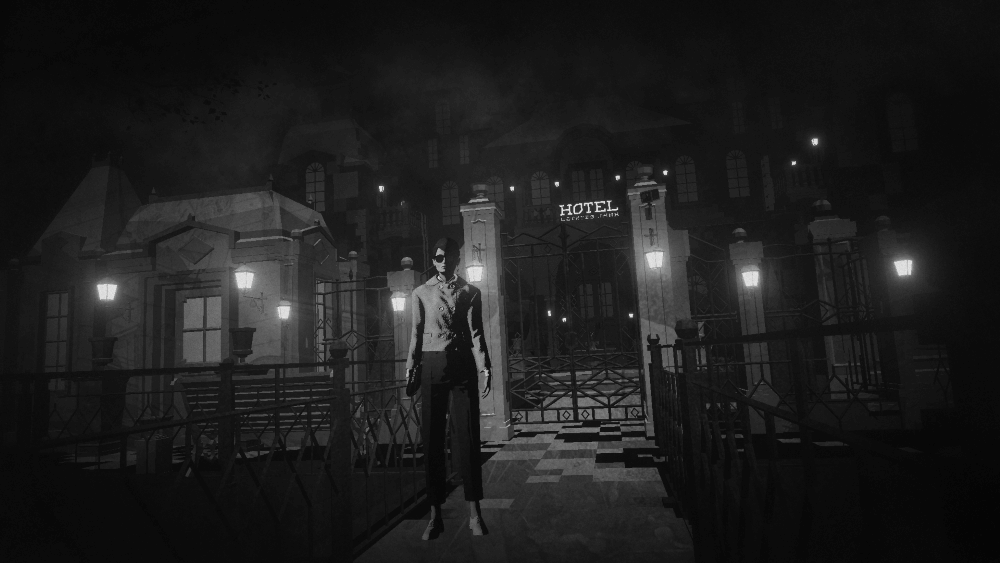
WHAT IS IT?
The best digital escape room you’ve ever escaped from.
IS IT GOOD?
It’s a wonderful, if slightly overlong, puzzle adventure.
WHO SHOULD PLAY IT?
Mensa members and aspirants alike.
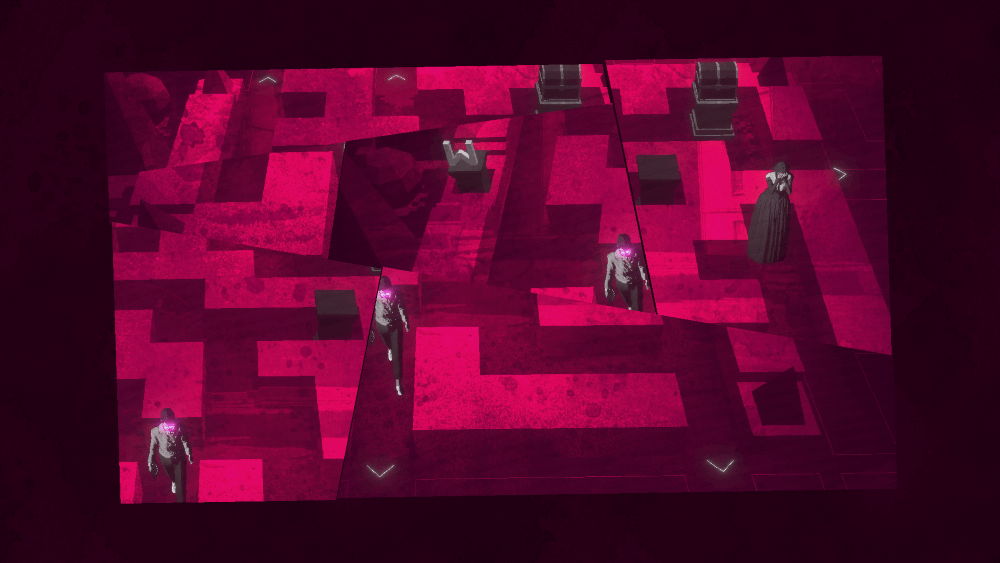
THROUGH THE DARKNESS OF FUTURE PAST
It is no exaggeration to say that Swedish studio Simogo is one of the most exciting game developers working today. Their Device 6 (2013) remains, to this day, the best narrative puzzle game ever released for iOS, and I consider Year Walk (2013), a psychedelic horror mystery, one of the most unsettling interactive experiences ever made. The rest of their resume speaks for itself.
Simogo’s first proper mystery game in a decade, Lorelei and the Laser Eyes is a fine return to form, and a must-play for anyone who fancies themselves a modern-day Sherlock (or Benoit Blanc, if you prefer). Like an escape room conjured out of David Lynch’s dreams, Lorelei is narratively compelling, mentally demanding, and deeply rewarding – provided, of course, you have the wherewithal to make it through all 150+ of its puzzles and riddles.
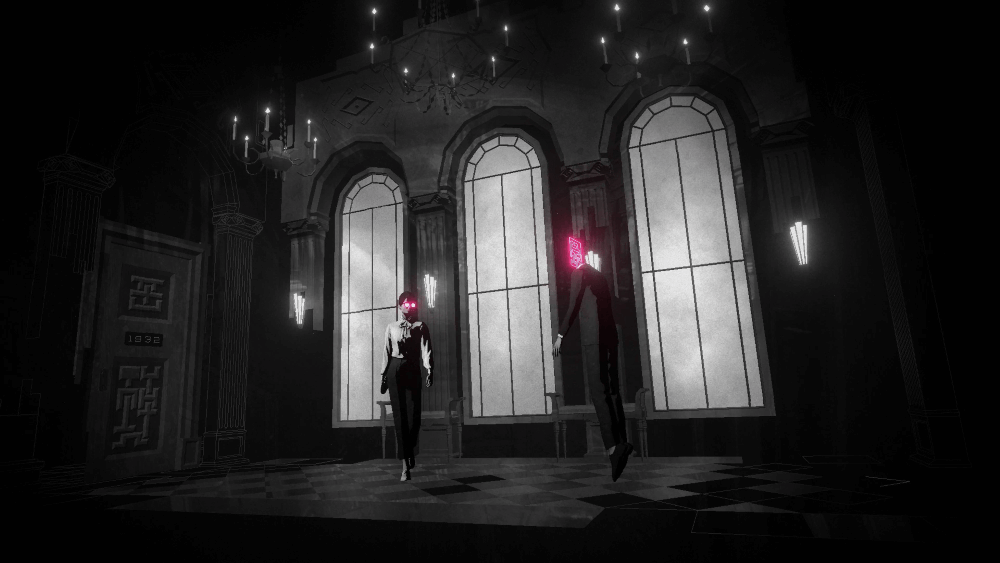
THE MAGICIAN LONGS TO SEE
Lorelei and the Laser Eyes begins on an enigmatic note: the protagonist – who may or may not be the Lorelei of the title – has been summoned to a remote mansion deep in an ominous forest, where her eccentric host has devised a mansion’s worth of riddles to keep her occupied.
Given all the occult imagery and the host’s somewhat tenuous hold on reality, one might think the safest bet would be to hustle on out of there. But, wouldn’t you know it, the protagonist’s – that is, the player’s – car has broken down just outside the gates, leaving little choice but to play along until she (you) can devise an exit strategy.
Lorelei is an odd gem of a game. Effectively a large virtual escape room, its central animating feature is the player’s desire to solve most, if not all, of its brain-teasing puzzles. These puzzles run the gamut from the obvious – find the hidden object, solve this simple math problem – to the obscure – decode these cryptic symbols spread out across the mansion, then figure out where to input them and in what order.
Importantly, every puzzle in Lorelei is grounded in real-world logic, trusting in the player’s basic facility with mathematics and capital-L Logic, and offering helpful primers on the many concepts and systems deployed by the game, such as Roman numerals, lunar phases, and Latin idioms. Unlike, say, the infamous Rubber Chicken With A Pulley In The Middle, no Lorelei puzzle ever tips into the absurd or unfair.
That said, because the narrative itself is so opaque, solving puzzles is often the only reason to move forward, given Lorelei’s maddeningly unclear stakes and character motivations.
That, as one of Lorelei‘s in-universe game designers (more on them in a moment) might say, is a feature, not a bug. Consciously emulating puzzle adventure titles like The Witness or, further back, Myst, Lorelei is the proud torchbearer for a long tradition of labyrinthine, multi-room puzzlers which offer rewards for those brave – and wise – enough to overcome their many, many challenges. For some players, this might be a turn-off, but I eventually grew to appreciate the balance between solving puzzles for puzzling’s sake vs. solving the in-game mysteries to advance the story.
What also might be a turn-off for some is the absolute necessity of playing with pen and paper in hand (and with ready access to a calculator). While a lot of the puzzles can, in theory, be worked out through mental gymnastics alone, Lorelei is an easier, and superior, game when you can write down clues, reorient symbols, test theories all by hand. By the end of my playthrough, I had a notebook’s worth of totally indecipherable scribblings, and it felt awesome. Thanks, Dad, for that big fat Mensa book all those years ago.
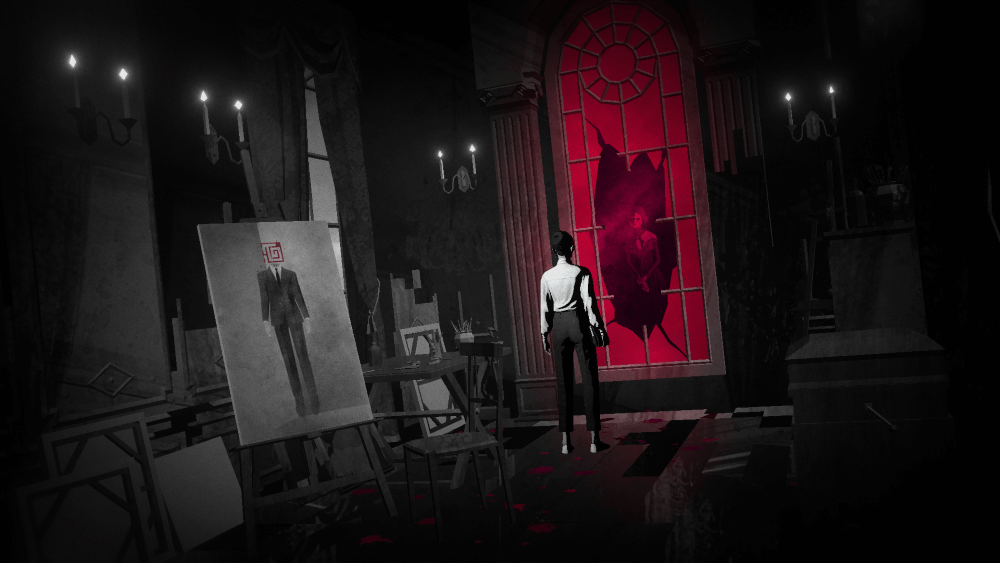
ONE CHANTS OUT BETWEEN TWO WORLDS
Lynchian by design, Lorelei also has a lot in common with, of all things, suda51’s killer7, with its cel-shaded, desaturated look, deliberately kooky camera angles, and esoteric dialogue bordering on the incomprehensible. But where killer7 was faulted for its time-killing combat sequences, Lorelei deliberately eschews anything resembling action or, for the most part, bloodshed. In lieu of weaponry or the immediate threat of violence, what you get is one very long journey up and down hallways, through hidden chambers, and back and forth between riddles and clues which only barely hint in the right direction. (Given the mansion setting, another helpful way to think of it is Resident Evil but without the zombies.)
Impressively, Lorelei is designed such that it’s unlikely you’ll ever get truly lost. If you think you can solve a puzzle, you probably can, just by carefully observing your surroundings and jotting down ideas on your (real-world) notepad. If it seems like you’ve hit a roadblock, or that you’re missing key information, then it’s perfectly fine to wander off and return to a puzzle hours later. Like the genius designers at FromSoftware, Simogo does an excellent job of giving you the latitude to explore the world on your own, while still funnelling you towards key locations in order to maintain a sense of progress.
And if you really get lost? There’s no shame in shutting down your Switch for the night and giving your brain a rest.
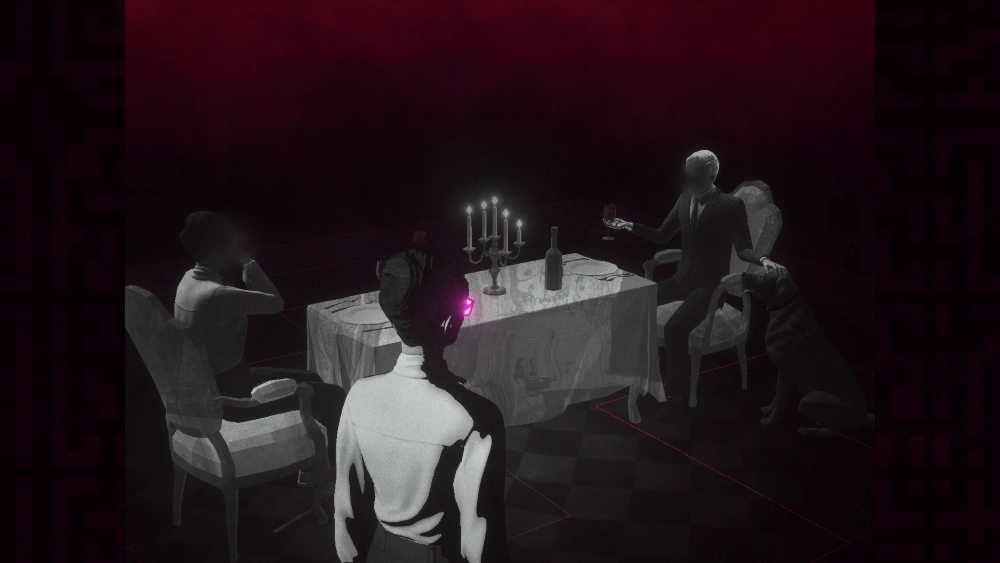
FIRE WALK WITH ME
Lorelei‘s incredibly simple control scheme – control stick for movement, one(!) single button for everything else – belies the complexity of its puzzles and approach to storytelling. This is a game where a single locked door can spur an eight-hour sidequest taking you to the depths of a demonic trivia night, and where the simple act of phoning a hastily scribbled number can unlock an entirely new in-universe game.
Speaking of which – Lorelei is very much comfortable with, even playful about, the strengths and limitations of its chosen medium. Simogo has never been shy about breaking the fourth wall, but Lorelei is the first of their titles to bake the very concept of gaming into the game itself. It’s not much of a spoiler to say that game design is central to this story, and that Lorelei’s ability to wink at the audience is part of its charm. Even the act of forcing players to work with real-world paper and pencil is Lorelei’s – and Simogo’s – way of subverting what it means to play a digital game.
So yes, while some puzzles will have you feeling like Lisa Simpson and that damn vegetarian lunchbox, most of the time Lorelei will delight and surprise, even as it confuses and (ever so rarely) terrorizes. Lorelei is not for the weak of mind or faint of heart – it’s not a horror game, but it can get downright spooky – but for the right type of audience, there’s nothing else quite like it. That is, until David Lynch gets around to making that Twin Peaks video game we’ve been clamouring for.
***
Final score: 9/10 damn fine cups of coffee.
Visit the official website for Lorelei and the Laser Eyes here.


